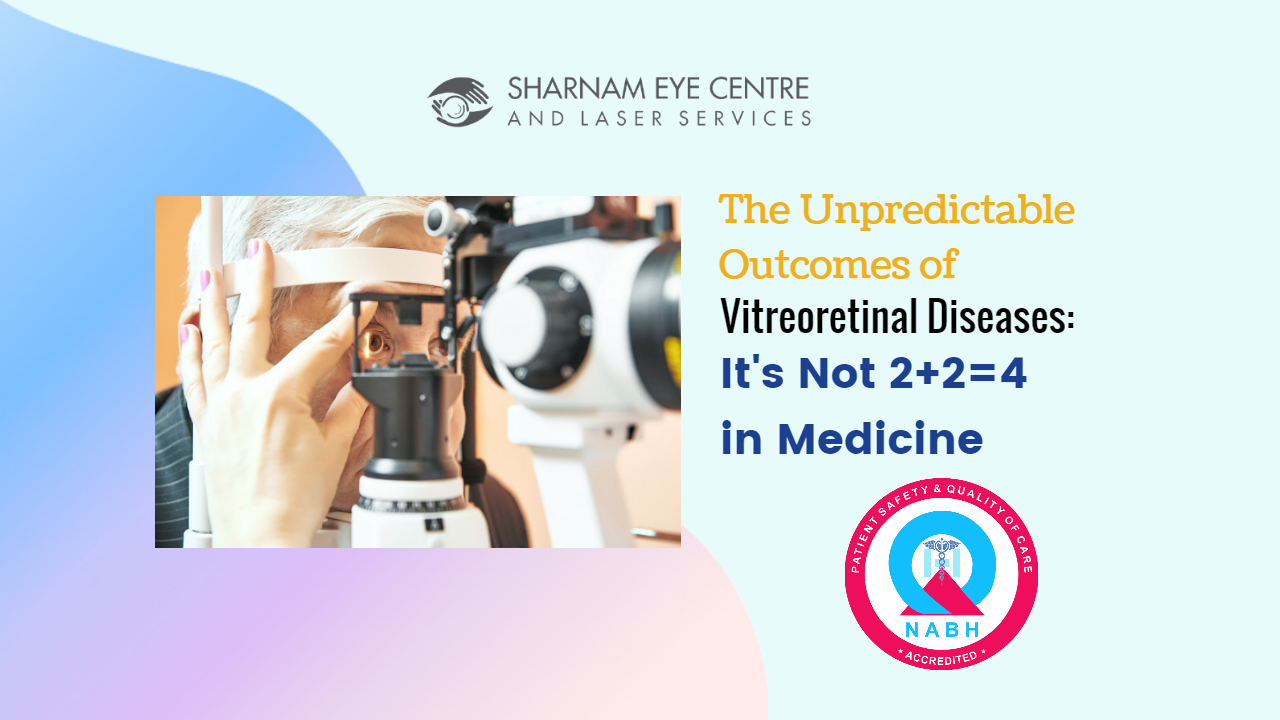Medicine isn’t mathematics. The outcome of any medical treatment isn’t as straightforward or guaranteed as the result of a simple mathematical equation, like 2+2=4. This principle becomes even more pronounced in the context of complex disorders such as vitreoretinal diseases.
Vitreoretinal diseases involve serious and intricate conditions affecting the sensitive, delicate retinal tissues and surrounding eye structures. These diseases challenge our understanding of the human body and the intricate workings of the eye. Even with the best available technology, refined treatment procedures, and highly skilled surgeons, we cannot guarantee the outcomes of these treatments.
The process of managing vitreoretinal diseases involves sophisticated treatment procedures, which are constantly being enhanced thanks to technological advancements and the evolution of surgical skills. A surgeon could be using the most state-of-the-art equipment, guided by years of experience and a high degree of expertise, yet the outcome may still fall short of expectations.
It’s important to note that the treatment outcomes for vitreoretinal diseases cannot be compared with those of cataract surgery or refractive procedures. While these conditions generally have a high rate of successful treatment due to their relatively simpler nature, vitreoretinal diseases, by virtue of their complexity, do not afford such certainty.
An unfavourable outcome, while unfortunate, is not always indicative of a surgeon’s lack of diligence or competency. Medical professionals commit themselves to saving and preserving vision with the utmost dedication and to the best of their ability. However, the intricate nature of vitreoretinal diseases means there are factors that can impact the result of treatment that are beyond their control.
Patients, their caregivers, and the general public should understand this inherent complexity. The unfortunate truth is that not all battles against vitreoretinal diseases will be won, despite the best efforts of the medical community. This is not a reflection of the surgeon’s lack of effort, but rather a testament to the complexity and severity of these conditions.
Doctors should not be blamed for every unfavorable outcome in these complex conditions. As we continue to improve our understanding and treatment of vitreoretinal diseases, it’s crucial that we maintain a realistic perspective on the challenges that these conditions present and the limitations that even the most advanced medical science currently faces. Understanding, empathy, and patience are as integral to this process as the most advanced surgical techniques and technologies.
Disclaimer: This content is for informational purposes only and should not replace professional medical advice, diagnosis, or treatment.



